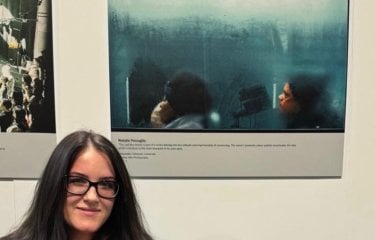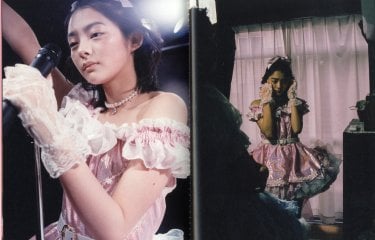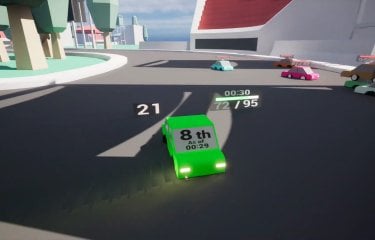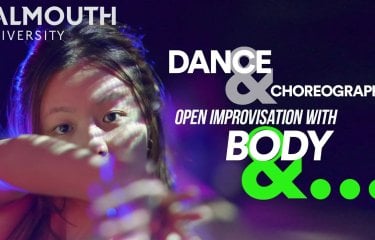From international rail industry expert to award-winning multidisciplinary artist
19 September 2023
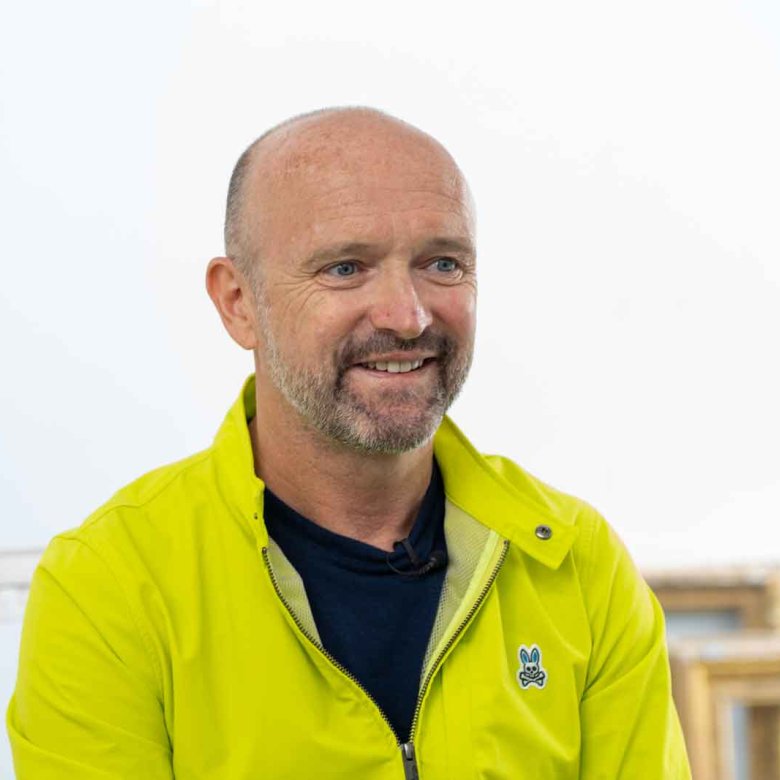
Spencer Hogg’s creative journey isn’t the kind you hear about every day. With an illustrious career as a railway designer and engineer to his name, he is now a practising artist and student on Falmouth’s online master’s in Fine Art. With numerous awards and residences under his belt and ambitions to become a PhD researcher, we asked him all about his incredible career change, and how his practice has evolved since joining Falmouth’s online community of artists.
How did you make the move from railway design, build and maintenance expert to multidisciplinary artist?
At the age of 18, I had dreams and aspirations to follow a creative path as a musician, however, personal circumstances forced me to temporarily park my dreams and find a more ‘traditional’ career. After 30 years of a successful and interesting career as an engineer - designing and building railways around the world - I decided to reengage with my creative practice again with a view to changing career. I have since flowed with this exciting and rewarding new path in my life, and this openness to change has led me to develop an innovative and successful fine art practice in the United Arab Emirates where I currently live.
What made you decide to study Fine Art online with Falmouth?
After becoming disillusioned with the commercial art world, a friend who teaches on a fine art master’s programme in Abu Dhabi planted the seed in my head that it could be an option for me. After considerable research, I chose the master's with Falmouth as it offered me the flexibility to study, create and work at the same time. I was also attracted to Falmouth’s established reputation as a creative arts institution with notable alumni such as Tacita Dean.
What is the most valuable thing you have taken from the course so far?
The research and critical reflections required as part of the course content have been the elements that I have connected with the most. This has enabled me to explore and question why I create, and - crucially - consider how my practice fits into the global contemporary art world.
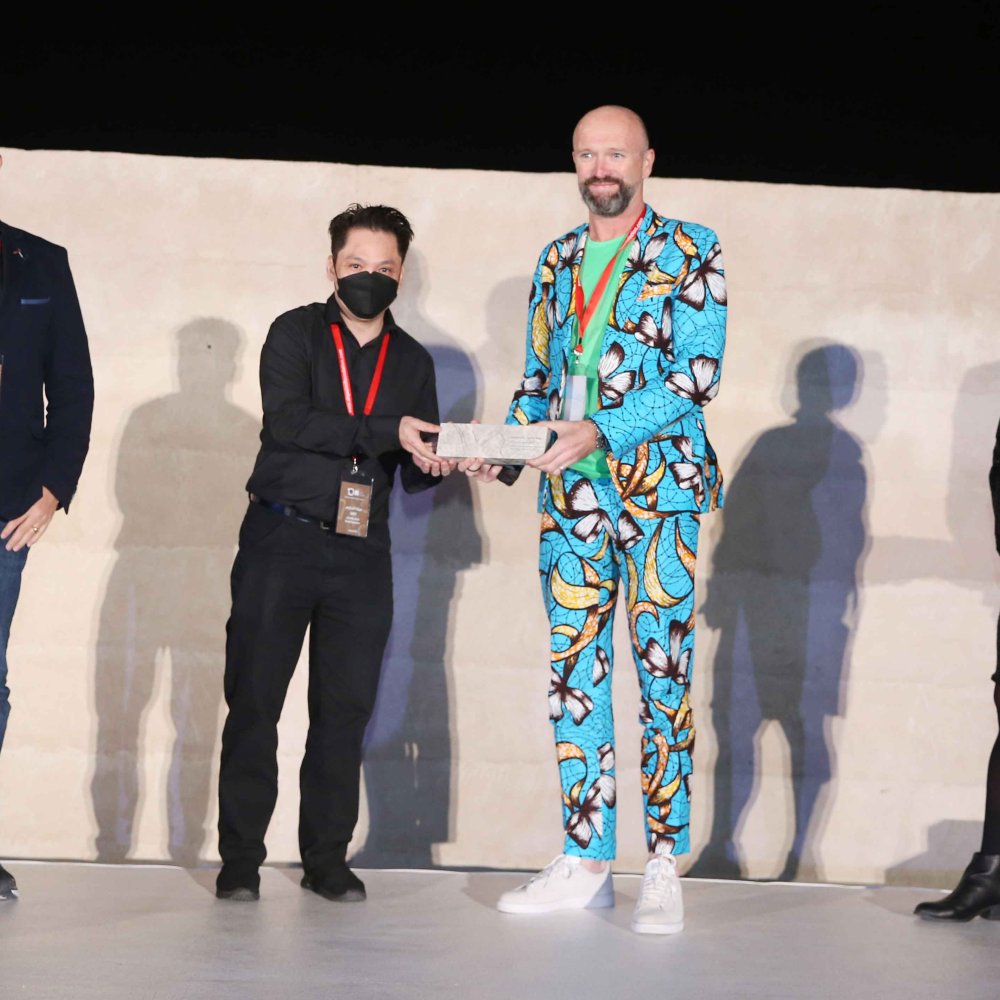
Spencer Hogg receiving the award for Best Sculpture at the Ras Al Khaimah Fine Arts Festival in 2022.
You won the award for Best Sculpture at the Ras Al Khaimah Fine Arts Festival last year. How has your practice developed since being part of the course community?
When I started the course, I was primarily a sculptor and photographer. As the course has progressed, I have been encouraged by the staff at Falmouth to experiment with new mediums and materials. For my Final Major Project, I am working with moving image, sound and performance. I have developed my creative and technical skills in these new mediums through learning, experimentation, and research during my two years on the course.
How have you found the ability to forge global connections with other artists through online study?
The master’s at Falmouth brings together students from all over the world who have very diverse backgrounds, practices, and interests. This enables us to learn from each other while engaging with the course’s online material delivered by the tutors. The course also includes physical meetups of student cohorts and staff, and I have attended in-person symposiums at both Falmouth Campus and at the Venice Biennale which have helped me to cement and grow the relationships developed online with my peers and tutors.
You were recently invited to take part in the Guggenheim Abu Dhabi visiting artist programme. Can you tell us about this experience and what you got out of it?
I was invited by the Guggenheim Abu Dhabi to be a participant in a three-month sound collaboration project with eight other UAE-based artists led by sound artist Kabir Mohanty. Each artist recorded, edited, and produced a sonic composition using recorded field sounds and voice to provide a repository of memories and voices that we do not normally hear. The works were exhibited as a sound installation with all the artists’ sonic compositions experienced as one singular installation. The key lesson I learned from this project was the power and benefit of collaboration by removing the artist as an individual, and bringing us all into one singular collective.
You have exhibited and performed your work all over the UAE. Can you tell us about an exhibition that has been particularly special for you?
If I had to pick a past exhibition and performance, I would select my most recent moving image/sonic work Please Leave in Silence, which was created as part of the Abu Dhabi Guggenheim programme. This was special to me as this was a collaboration with my human/canine family unit, who all coexist in a nurturing and symbiotic relationship.
You describe yourself as a global citizen, born in the UK but having resided all over the world and currently in Abu Dhabi. How does this way of life influence your practice?
As someone who exists in a temporary and transient state, in my work I ask the question: ‘what does it mean to be in outer space within a place?’ My practice and the landscapes of my host nation coexist in a collaborative and symbiotic relationship. I immerse myself within ethereal and uninhabited spaces to spark my creative thought process. I actively seek out and absorb the environment, materials, and cultural experiences of my host nation and mix this up with the data and memory stored on the magnetic tapes of my mainframe brain. My process culminates with my body, costume, and objects being juxtaposed against sublime and dystopian landscapes to produce outcomes of fantasy, mythology, futurism, and carnival.
You are set to complete your studies with Falmouth later this year. What does the future hold for you?
I think as an artist it is always important to keep moving forward and experimenting with the unknown. Building on the positive experience I have had with the master’s at Falmouth, I am planning to apply to practice-led PhD programmes in Fine Art with a view to commencing my studies next year. I would like to continue my engagement with academia while researching, experimenting, and creating innovative bodies of work and alternative ways to disseminate my practice.
